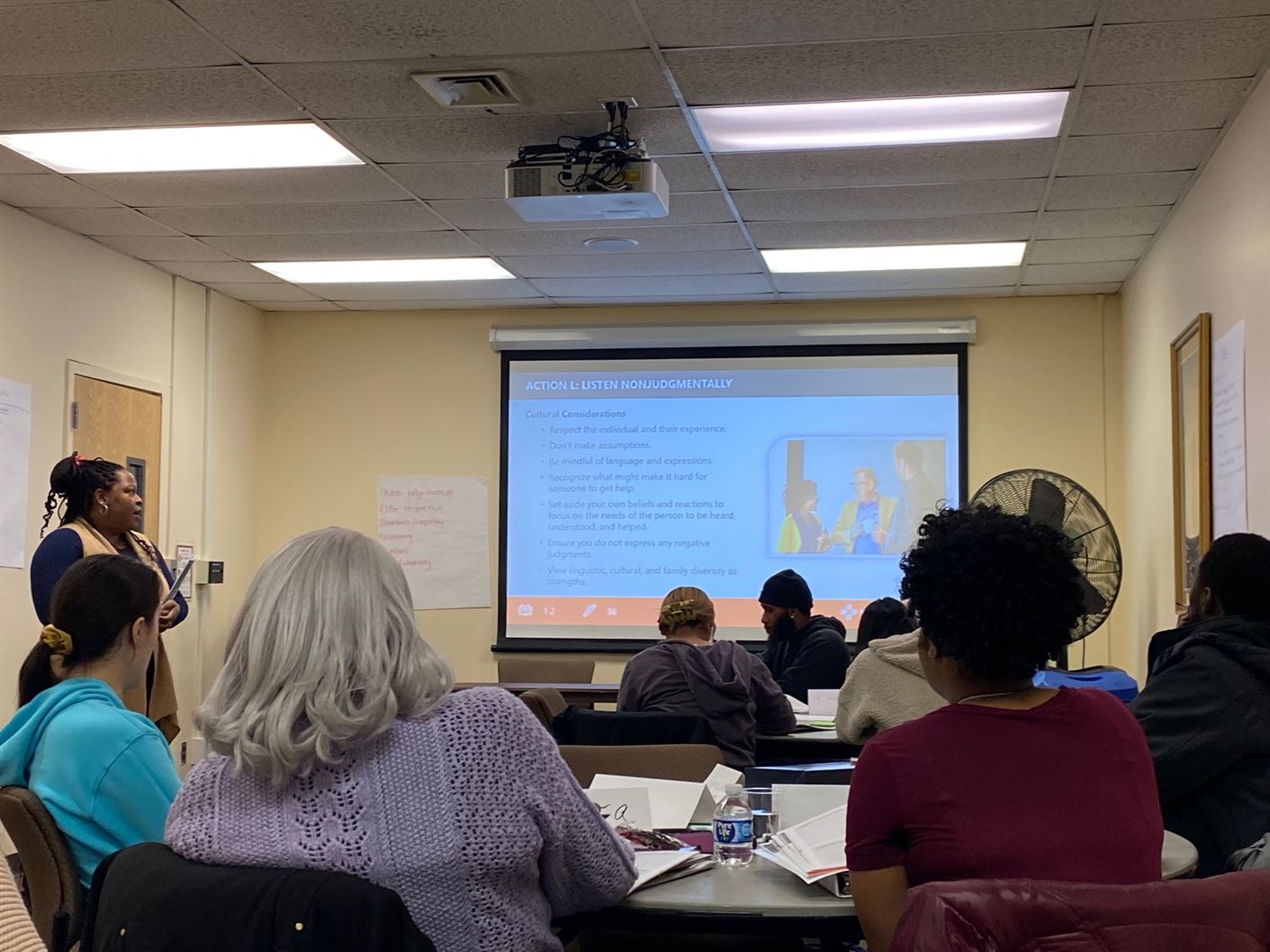Over spring break, Montclair State University’s Counseling and Psychological Services invited students to attend a training created by the organization Mental Health First Aid.
Originating in Australia, the training was designed to educate adults on the signs and symptoms of someone facing a mental health crisis or abusing substances and how to assist them.
The National Council for Mental Wellbeing has adopted this program to address the growing realization of how critical mental health is and the number of people it is affecting. According to the National Institute of Mental Health, about one in five people in the United States deal with mental health struggles.
The training was held on March 7 at the Student Center and was organized by Counseling and Psychological Services Associate Director Melissa Zarin and staff psychologist Jude Uy.
Over 50 students and alumni had the opportunity to attend Mental Health First Aid training taught by certified mental health first aiders. Faculty and staff were also able to attend MHFA training on March 6, 9 and 10.
Throughout the eight-hour course, students participated in discussions, activities and knowledge checks.
Some of the material covered was recognizing signs and symptoms of someone’s declining mental health, how to reach out to someone with those signs, the role of a mental health first aider and what exactly mental health, mental health disorders and substance abuse disorders are.
The material also touched upon culture’s effect on how mental health is treated, the importance of a mental health first aider’s focus on their well-being and how paramount it is to not delay in aiding someone to seek the professional help they need.
Mental health first aiders do not diagnose or treat, they make sure themselves and others are safe before engaging with someone facing a crisis and when helping someone they can follow ALGEE. ALGEE is an acronym for steps mental first aiders can take when addressing a mental health situation.
ALGEE stands for assess/approach, listen, give, encourage and encourage.
Students attending were provided with an instructional manual to take home as a guide for any future situations they may encounter.
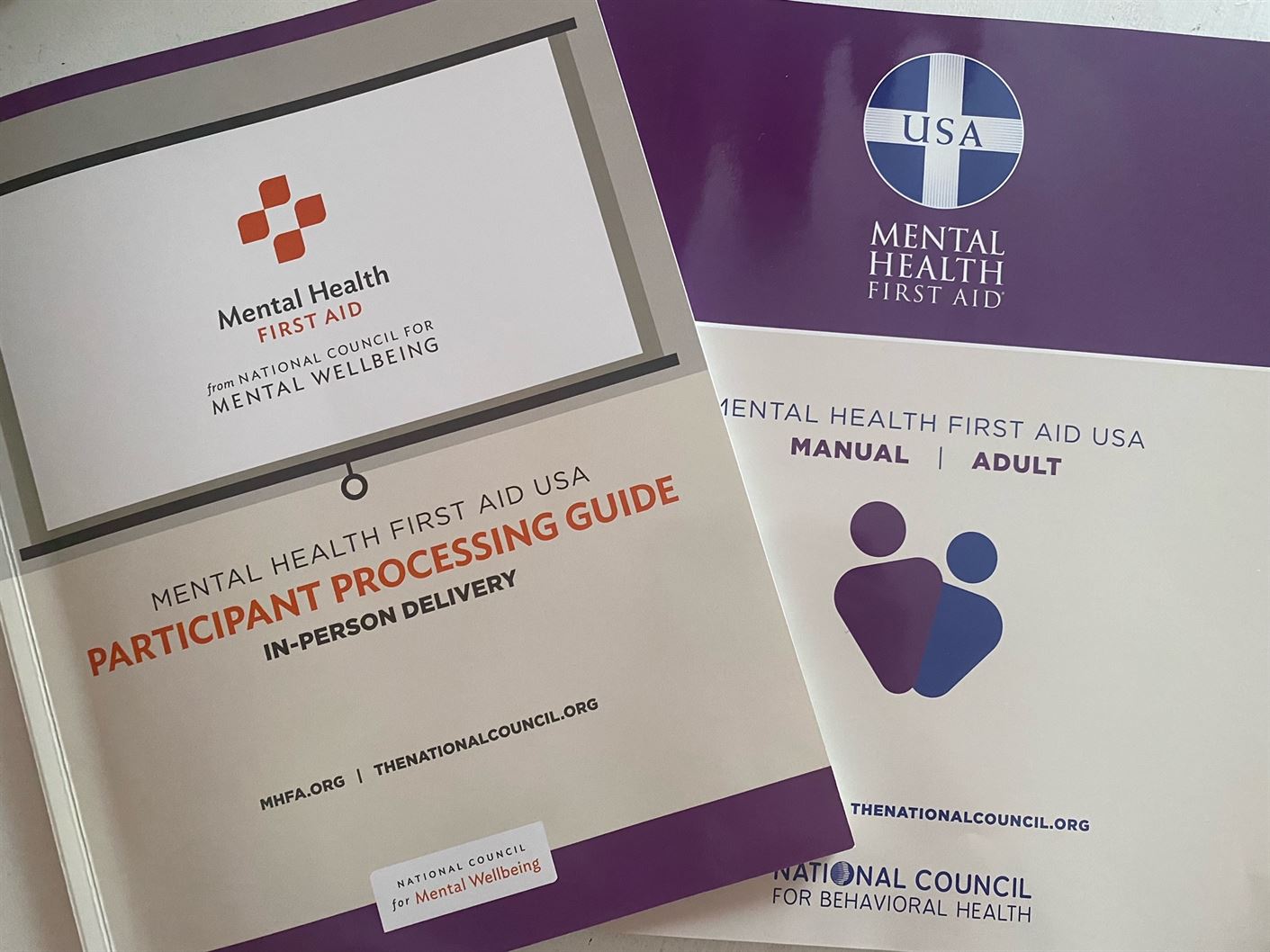
Students were given a Mental Health First Aid manual and wrote in their participant processing guides as they followed along with the lessons.
Kamil Santana | The Montclarion
Those who attended the training and completed an online exam following the training hold a certification in Mental Health First Aid that is valid for three years.
Jasmine Jackson is a senior and family science and human development major. She attended the training with her mother Laura Jackson. They’ll both be graduating this spring.
Jasmine said attending the training was important as it relates to her future career.
“I’ve also been interested in learning about mental illnesses,” Jasmine said. “I work closely with teenagers and also want to work with adults in the future so I just wanted to know the basics first to get a better understanding.”
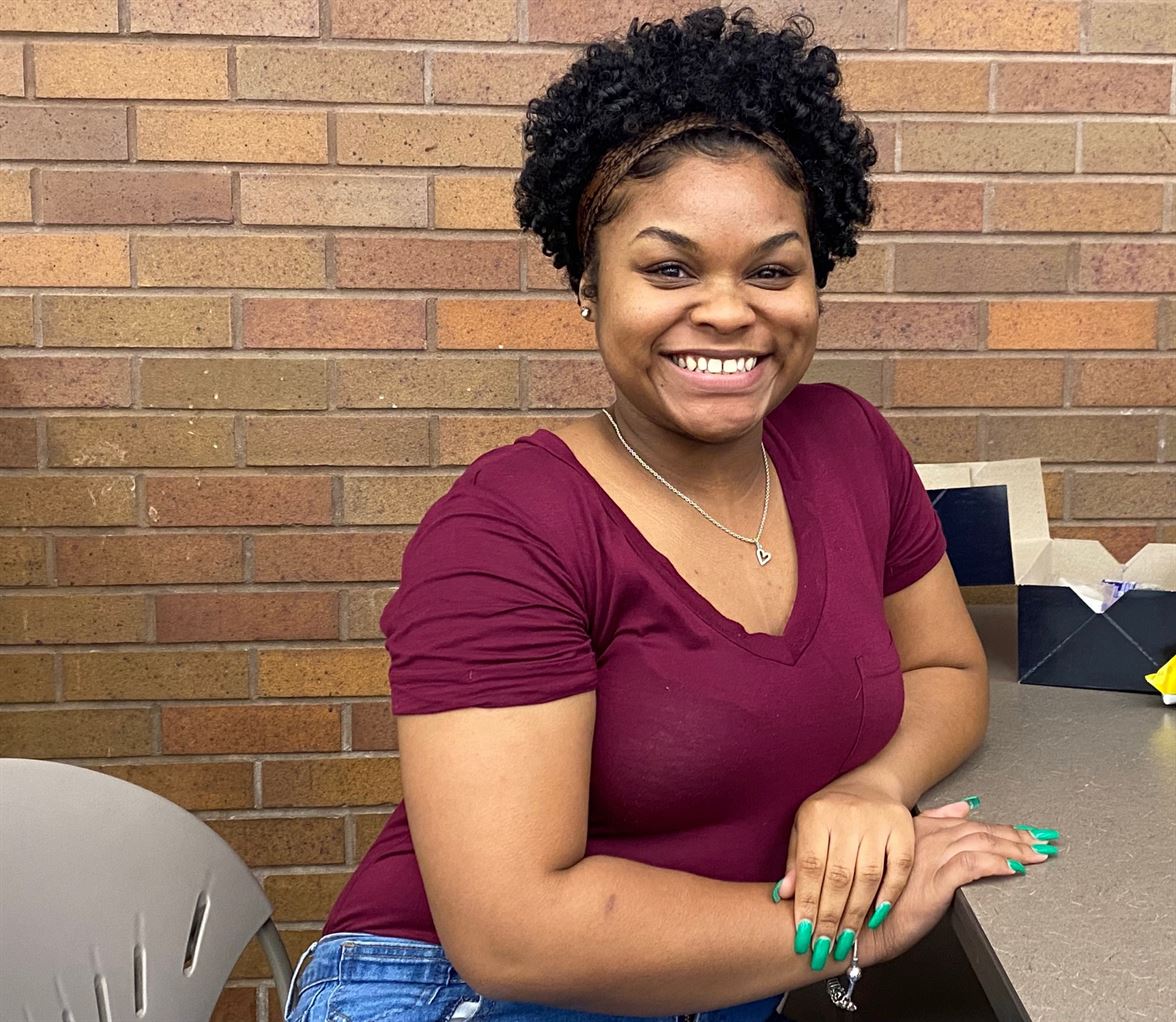
Jasmine Jackson believes this training will aid her with her future career.
Kamil Santana | The Montclarion
Jasmine was open about her mental health struggles and said it is her motivation to help others.
“I struggle with it on a daily basis,” Jasmine said. “That’s one of the major reasons why I’m so interested in mental health because I know how it feels- the overwhelming feeling, the anxiousness, the low self-esteem, all of [the] self-doubting, all of those things. It’s a constant, daily struggle. That’s what pushes me to be so involved, especially in today’s society with young people and adults. You see it a lot. I always say it’s ‘me fighting me’ daily.”
Laura Jackson is a graduate student and higher education major. She found the training beneficial as she works with many people through her non-profit organization.
“I have a nonprofit to provide services to families, women and children and I just basically wanted to identify the signs and symptoms of mental illness [if] they have it and how to refer them to the appropriate assistance,” Laura said.
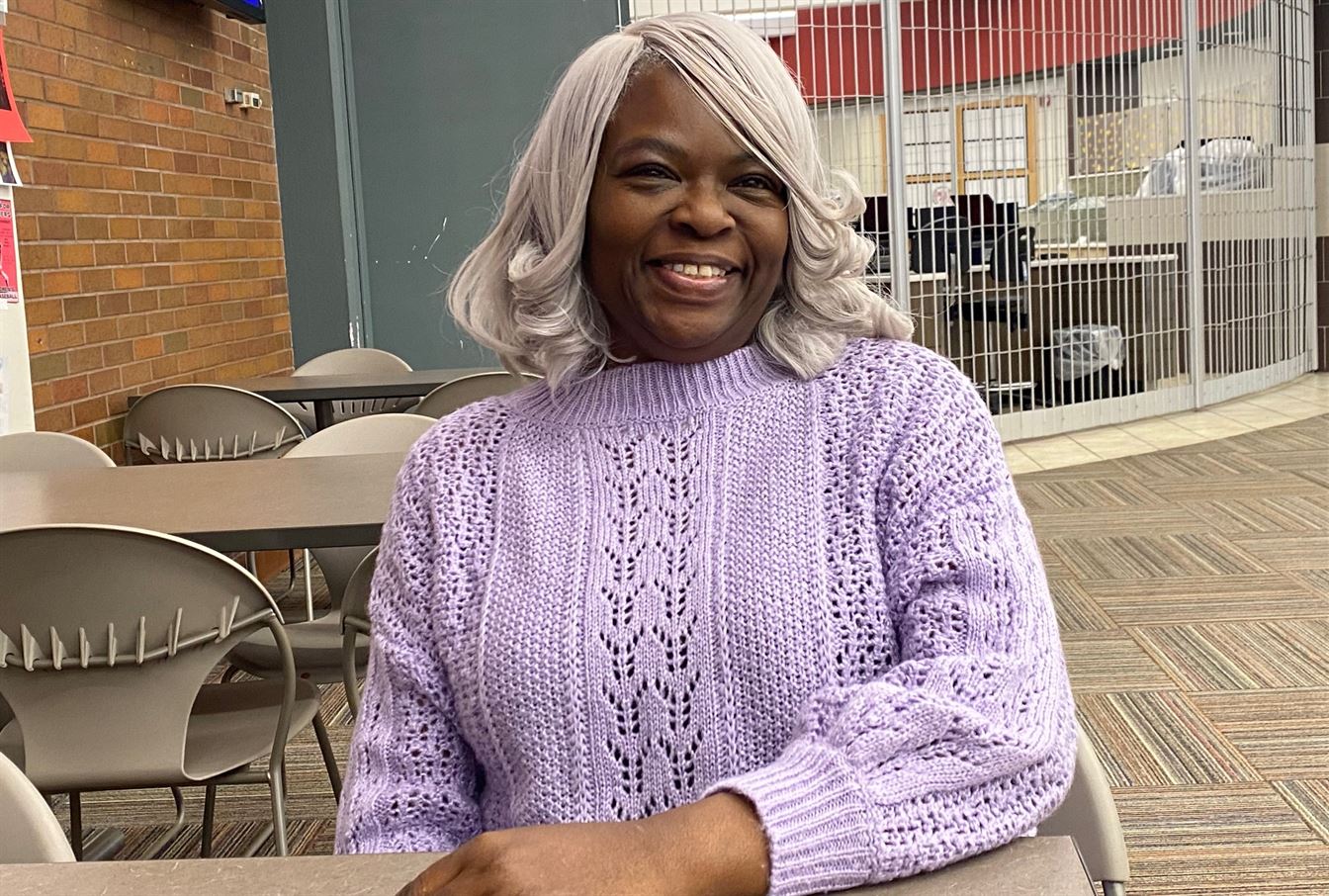
Laura Jackson, a graduate student and pastor, is grateful to have attended the training.
Kamil Santana | The Montclarion
As a community leader, she is now aware of how to help those she comes across who need aid.
“I am a pastor,” Laura said. “In that capacity, you deal with people from all walks of life. So being part of this mental health first aid class gives me the added tools and added security so when I do encounter mental illnesses or issues, I can understand what they’re going through. I can offer compassion and empathy in a way that they are able to be more freely able to communicate and express how they feel. I think this course is excellent for anyone to have the opportunity to take. I know I am so appreciative of it.”
Lukenson Francois is a senior public health major. He recognized that mental health could be overlooked, but being aware of the signs of mental health deterioration could be life-saving.
“I have a background in medical studies,” Francois said. “When I saw this training, I said ‘Let me jump on to refresh my memory about the mental health aspect.’ We know that health is the sum of physical, social and mental well-being. This part of health tends to be neglected. As a public health major, I think that it is good to have those backgrounds. You never know in our society if we encounter someone that really needs help, being able to identify those needs and connect that person with appropriate support is really important and can save lives.”
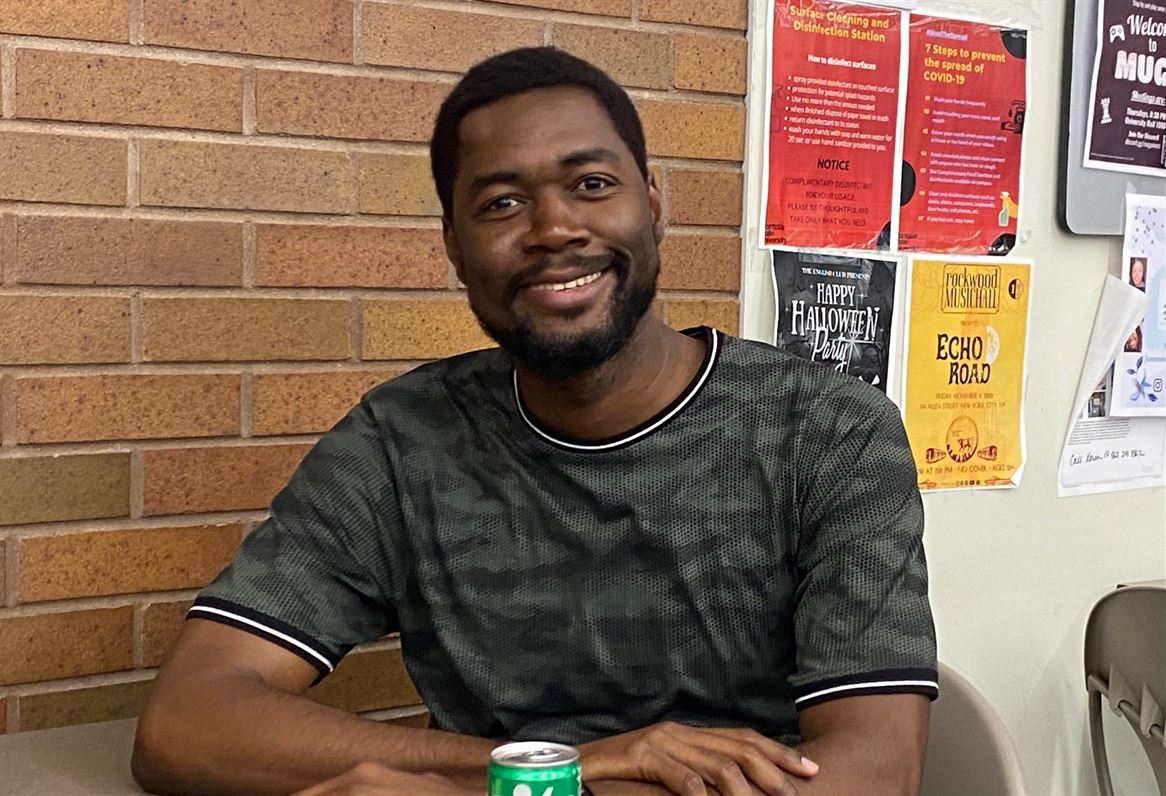
Lukenson Francois believes taking care of your mental health is critical to healthy living,
Kamil Santana | The Montclarion
Francois thanked CAPS for their support with his mental health.
“I have experienced mental health challenges as an international student coming here to the U.S.,” Francois said. “In my community back home [we’re] used to [having] a lot of social support but arriving here I was isolated. And as a black guy who [didn’t] speak English fluently, I felt really alone. I reached out to CAPS. I asked for help to make me feel more comfortable and confident when I speak with my foreign accent to people. This sometimes prevents me [from engaging] in conversation. They are helping me with this and I think that I can also help other people, mostly immigrants in the same situation as me.”

